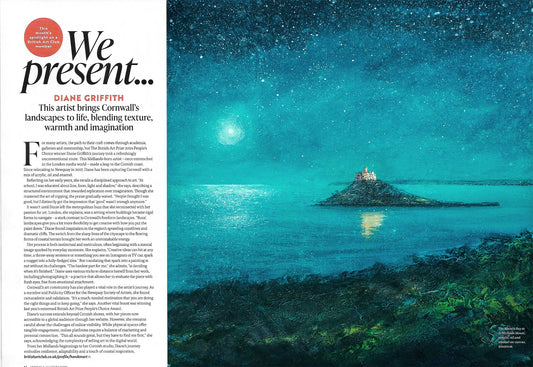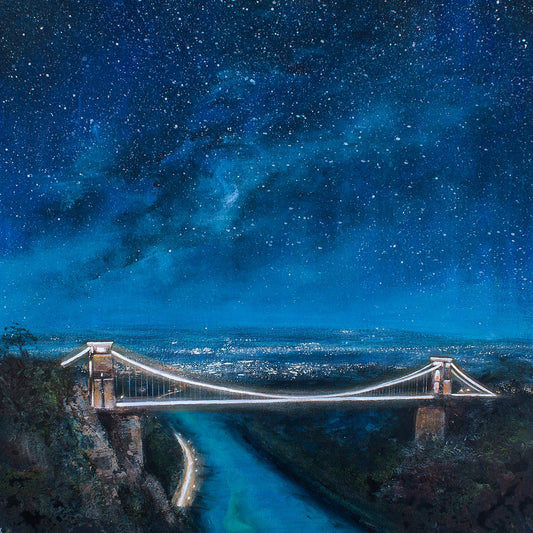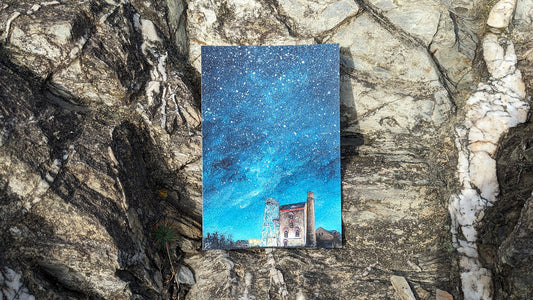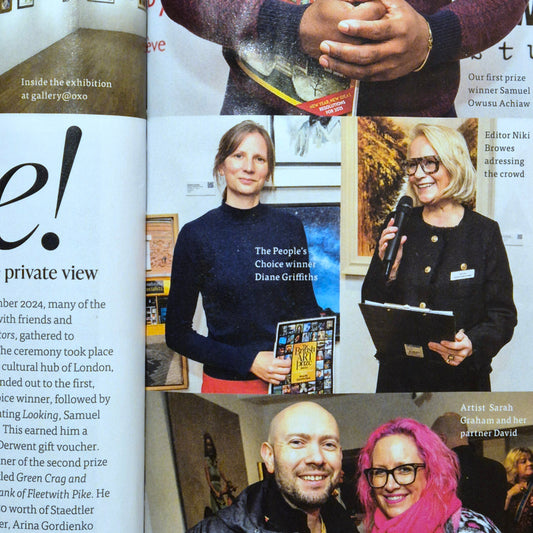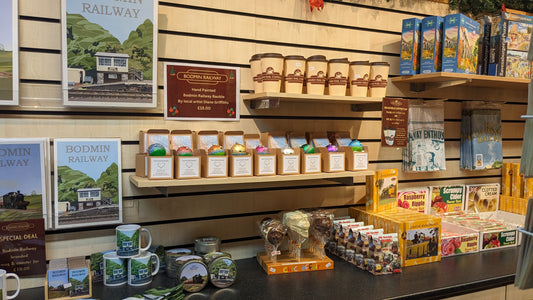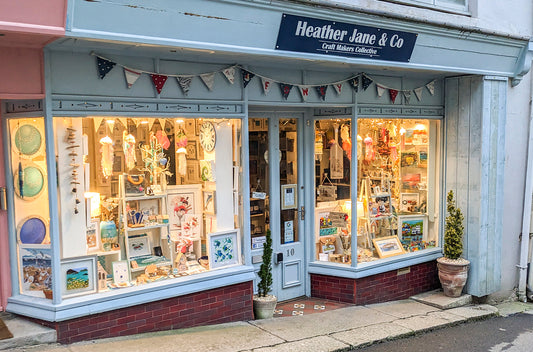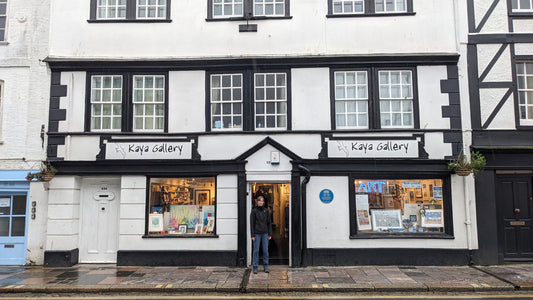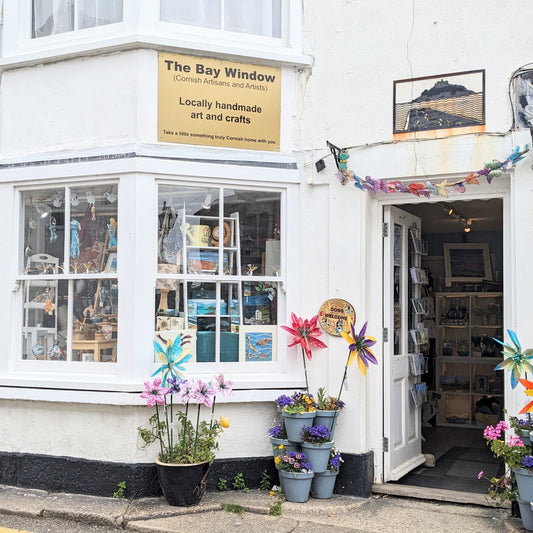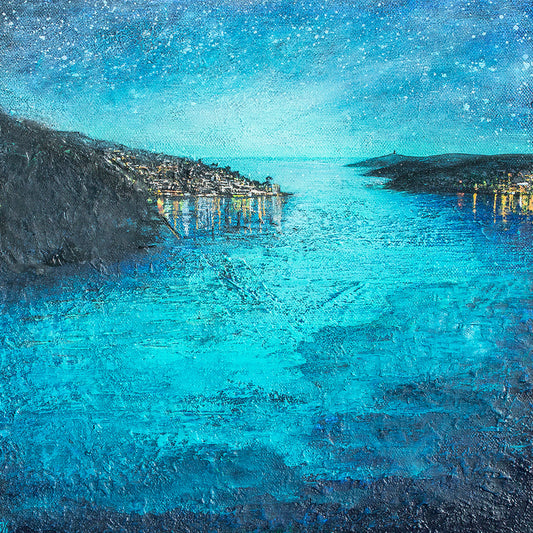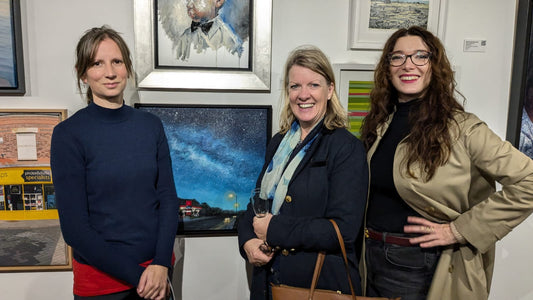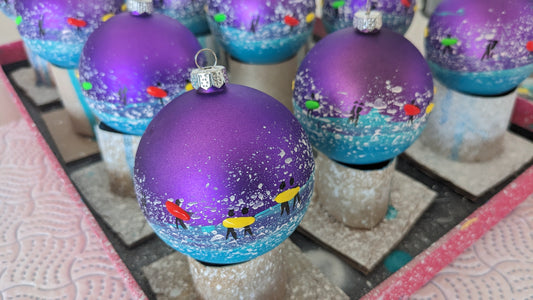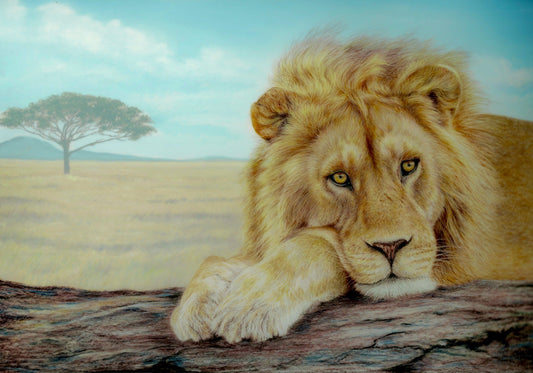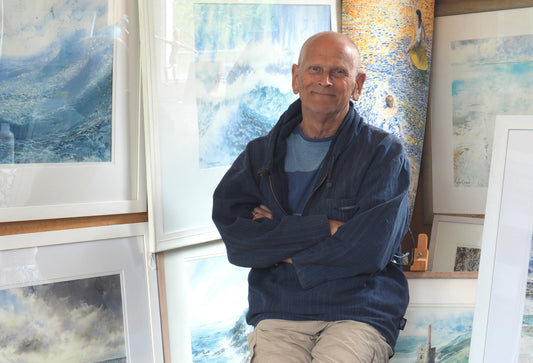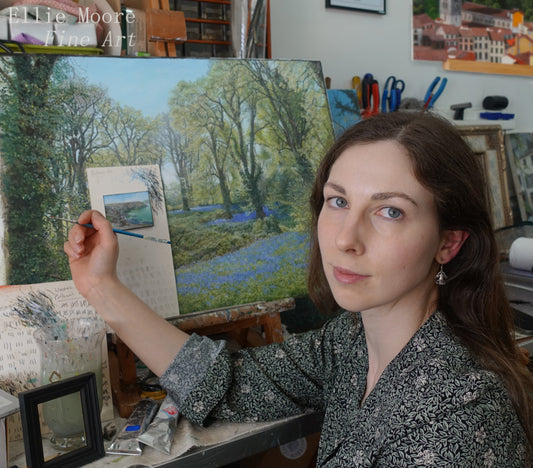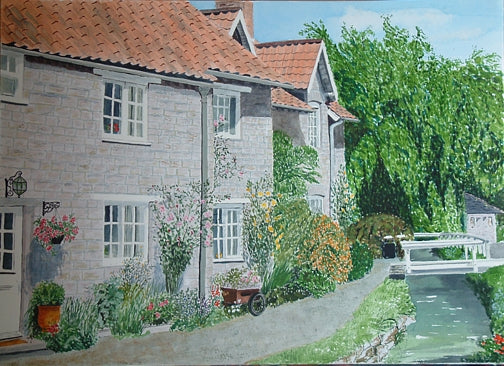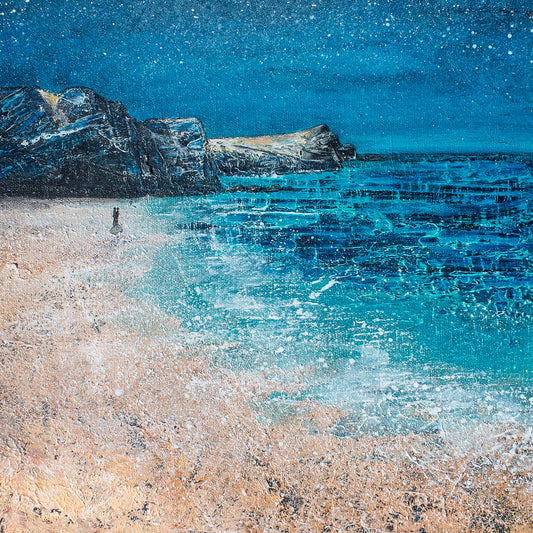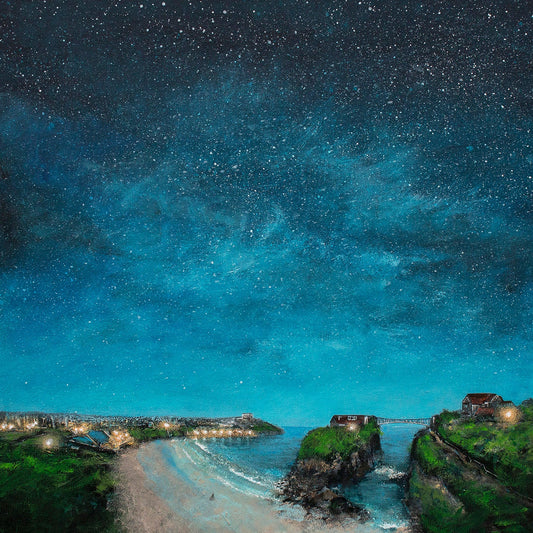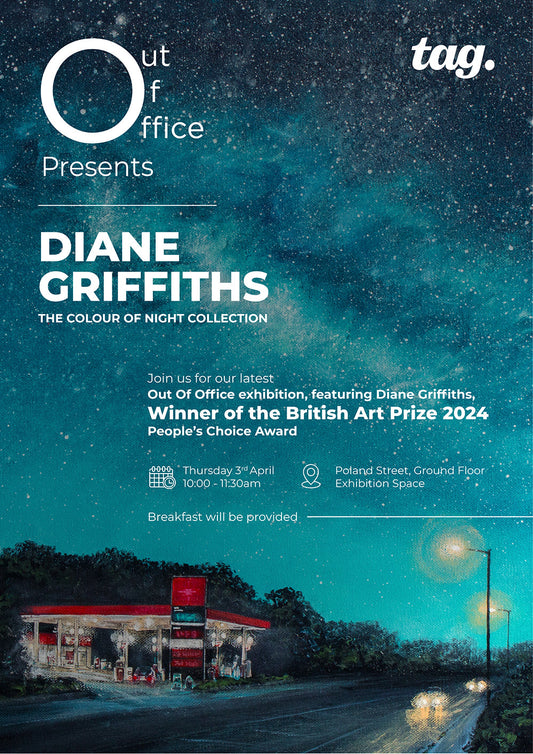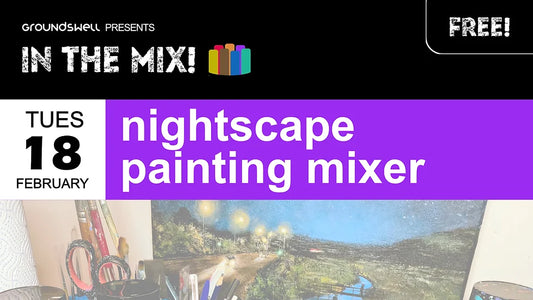Artist Interview - John Forward
Share

At this beginning of this year I attended a very enjoyable demo by artist John Forward. Switching from the rigid rules of his past career as an architect, he has now retired and there isn’t a straight line in sight!
A keen surfer a lot of his paintings are of the sea and the demonstration was no exception. He used a watercolour canvas to ‘lob some pigments’ (my favourite expression of the night) onto the canvas. Before the demo John created the image he was going to paint in charcoal – this was interesting because it kept him honest as he worked through the painting. John admitted it was easy to get lost in a painting when using these loose techniques and this sketch helps him to focus the mind.
Then using a hypo bottle (needle dispenser bottle) to squirt water on the canvas and then a rigger brush (tall thin brush you can load with paint) to start moving around the colour to build up the motion of the sea and ‘see if it ends up in a place I like’! Using various tools and paper towels he added and removed colour to create the effect he was after.
I found his approach to watercolour is relaxed and looked rather fun - and asked him to answer a few more questions for me so I could find out a bit more about him and his art.




I was born and brought up in South Wales in the 1950/60s, son of a primary school teacher and a chemical engineer. Dad was a scientist and Mum was the artist. She took delight in painting the windows of her school classroom with Disney characters (long before any copyright issues!). Her father, my beloved grandpa, was also a keen amateur artist and my mentor. I never lacked any encouragement and I spent many happy hours painting with him in the garden shed. At secondary school I had a similarly inspiring art teacher, a wonderfully exuberant and colourful chap who exhibited regularly in local galleries and taught me how to observe and depict the world around in broad and expressive strokes! I did well in my art ‘A’ level and desperately wanted to go to art school, but the careers advisor convinced me there was no future in it so I trained to be an Architect and kept my art as a hobby.
After many years working overseas and then returning to the UK to work in the Midlands, fate relocated me and my family to a small farm in West Devon. I did some freelance architectural work, farming, child rearing etc., and I built myself a studio in a corner of one of the pole barns. We had a particularly beautiful farm with woodlands and a meandering brook, so I had plenty of material for landscapes , waterscapes and animal studies which I exhibited locally and in Open Studio events.
You are part of the St Ives Society of Artists - can you give me a little bit about how you joined and what it's like being part of the society?
Eventually I managed to visit St Ives one weekend after a fellow artist had tried to convince me that the light there really is special, so I determined that I had find out for myself. It was then I discovered the St Ives Society gallery and decided I was going to do my level best to become a member. The quality and variety of work on show was so inspirational and I thought that the process of trying to be accepted and of staying ‘in the game’ afterwards, would make sure that my artwork didn’t end up stuck in a rut...it would oblige me to keep progressing. And by the way, my colleague was correct, the fact that the sea wraps around St Ives really does give it a very special natural light.
I think it took three attempts to be accepted as a member, and several open exhibition submissions, and really I owe my eventual success to Judy Joel who was the gallery manager at that time. She convinced me that my work was good enough and that I should simply keep trying.
I’m almost always proud of the work I produce, though the pieces are rarely exactly as I had envisaged at the start of the process, but I’ve never finished a painting where I don’t consider there is room for improvement! I’ve learnt that the best work is that which I have steered but had the courage to let it develop itself. My fear is always over-working and killing the energy of the work with excessive control. To that end I do a great deal of planning before I make a mark on the paper, and usually scribble out a little game plan. Every painting starts with a charcoal sketch in order to resolve the composition and decide upon the tonal balance. The painting which best fits these criteria is a loose watercolour I completed a few years ago of some rocks, seaweed, sand and surf called ‘Salthouse Beach Study’, and it’s one which I enjoy every time I look at it. Fortunately it hasn’t sold so clearly I can see something in it which others do not!

Salthouse Beach Study
I heard David Bellamy use the old adage ‘when you think you’ve finished your painting, you actually finished it half an hour ago’ many moons ago at one of his extraordinary demos, and I’ve remembered it ever since. It reminds me of the work of my school art teacher previously mentioned, who could depict a scene with a few exuberant strokes of a loaded brush and a couple of blobs of detail, and would then leave it and move on to the next picture. Sometimes he would return to it and add a few bits, but usually not. My normal routine is to try to stop a picture as soon as I start fiddling with it. I put it to one side and go back to it maybe a week later or even longer so I can observe with fresh eyes. If it unduly bothers me in any way, then I take a photo and print it and try to analyse the problem and plan out a solution before I do anything to the actual picture. The paintings which I do not re-work are almost always the best.
This next question is a tricky one, but it's one I've been pondering for a while. How do you define success as an artist?
I guess a successful artist is one who has the financial freedom to be able to create whatever work they wish to explore, and not have to worry about this generating an income. Now that I have retired and I have a modest but adequate pension I should be able to achieve this ‘Nirvana’! Certainly I have no inclination to haul my work around galleries any more because I have the outlets I need at St Ives, occasional solo shows in Bude and Open Studio events. These are quite enough to keep me busy, and I want to leave time for surfing (which is a major source of inspiration) and all the other stuff of everyday life.
When I sell a piece of work, particularly an expensive one, it gives my confidence a wonderful boost and indeed that is when I feel ‘successful’. However it is not defined by the income but the simple fact that my work has given someone such a spiritual lift that they are willing to part with hard-earned cash to have it hanging in their house. And finally there is legacy, the knowledge that my family, friends and grandchildren like my paintings so I can live on for a while in my daubs!
That’s a definition of success which we can all enjoy.

Henford Water
Inspiration is an important part of creating art, but also so its evolving and growing as an artist. How do you develop your art skills?
Gaining inspiration for artwork is easy, even the most ordinary subject or vista can become fascinating when used for a painting. I think this might be a good reason never to paint just from a photo because unless it has been actually experienced by the artist then it cannot convey how the artist feels or sees the subject. A crashing winter seascape simply has to make the viewer feel cold and wet! Trying to choose a subject for a painting which might sell when finished is a total waste of time, in my opinion, because the result will look contrived and probably won’t sell anyway.
I don’t consciously try to push out of my comfort zone, but I do get bored with a painting which is not making me think hard about what I want to achieve and how to achieve it with minimal brushwork. I pop into our local gallery regularly and gain ideas about different techniques so I suppose I must be evolving slowly and steadily without having to push it. For many years I only worked in watercolour because there was so very much to learn, but I have now moved into lino-cut print making and acrylic painting on salvaged surfboards, both of which have given some new cross-over skills and delight in different techniques.
For my next solo exhibition I’ve decided to prepare a whole wall-full of small charcoal seascapes, and this has made me develop my sketching skills and techniques, so I guess the advice is to give yourself challenges and see what happens. The result doesn’t really matter because the process will inevitably provide something you can add to your skills arsenal.
Every now and then I give my website (www.johnforward.com) a makeover but to be honest it is rather amateur and doesn’t really showcase my work properly. Nonetheless it’s all I have at the moment, plus my Facebook ‘John Forward Artist’ page, so those are the two easily accessible ways of seeing my work.
My studio is always open to visitors if they happen to be coming to Widemouth Bay or Bude. Just send me a text or email or use Facebook to set up an appointment.
I have a solo exhibition next year April 12th - 30th at The Bude Castle. I’ll post details on my website, so please come along. There’s a good cafe there too.
Email: vanishing-point@outlook.com
Text: 07966774595

Bessie
I thoroughly enjoying reading this interview. John sounds like he had a lovely childhood painting, but completely relate to be told not to go to art school and get a 'proper' job. Thankfully, like me, he turned back to art at a later stage!
I chuckled to myself when I read 'my fear is always over-working and killing the energy of the work with excessive control' - that's an excellent description of how I think a lot of us feel!
John also hits the nail on the head when he talks about not choosing a subject to paint that you think will sell, it's the wrong way round. Also I agree about if you are painting from a photo, make sure it's one or your photos or that you have experienced the landscape itself. For me it's about that experience, living and breathing in the landscape, but also understanding how it fits together and what's beyond the photos.
A big thank you to John for this interview - there are some real nuggets of wisdom woven in his entertaining prose. I'm inspired by his approach, attitude and somewhat relaxed yet successful discovery of art. I love that!
